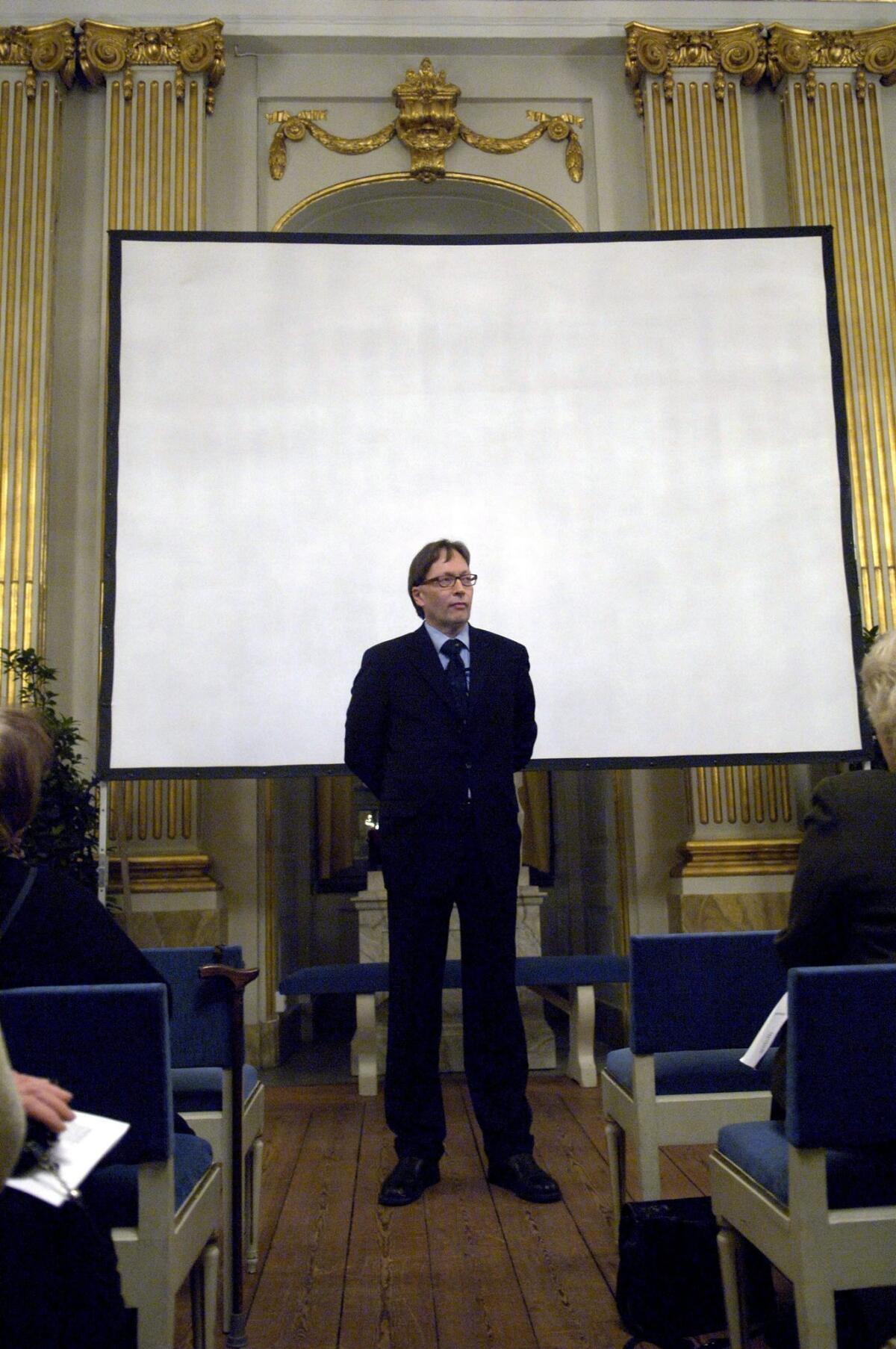Nobel Prize: Judge critiques âprofessionalizationâ of writers

This week, the Guardian reported on an interview published by the French newspaper La Croix in which the Swedish Academyâs Horace Engdahl â one of 18 voters who will decide the winner of the Nobel Prize for literature on Thursday â decries the âprofessionalizationâ of the Western writer, arguing that â[p]reviously, writers would work as taxi drivers, clerks, secretaries and waiters to make a living. Samuel Beckett and many others lived like this. It was hard â but they fed themselves, from a literary perspective.â
Engdahl, of course, appears to exempt himself from such criteria; an editor and critic, he teaches at Denmarkâs University of Aarhus, in addition to his duties at the Swedish Academy. His comments, then, are reminiscent of former U.S. Secretary of Education William Bennettâs argument that college is unnecessary â despite the fact that he holds an undergraduate and two graduate degrees.
Engdahl is no stranger to controversy; in 2008, he derided American writers and readers as âtoo isolated, too insular. They donât translate enough and donât really participate in the big dialogue of literatureâ â comments widely regarded as evidence of the insularity of the Nobel itself. Itâs not that he doesnât have a point about Americaâs inward-gazing culture, but if thatâs all he sees, he isnât looking closely enough.
The same is true of his remarks about professionalization, which zero in on writing programs and grants. âEven though I understand the temptation,â he explains, âI think it cuts writers off from society, and creates an unhealthy link with institutionsâ â forgetting, perhaps, that the Swedish Academy, which awards the Nobel, is one of the most prestigious institutions of them all.
Look: I understand the danger of writers aligning with any institution, with anybodyâs interests or agenda but their own. Itâs an issue I think about on a daily basis, writing for a newspaper, teaching in creative writing programs â how to remain independent, how to think for oneself.
Unlike Engdahl, however, Iâm willing to admit there can be advantages to institutional affiliations, and not just because they pay the bills. Rather, if we let them, institutions put us in touch with a community of readers and writers, many of whom think differently than we do. Literature does not, cannot, exist in a vacuum, and one of the benefits of having to work for a living is that it gets writers in the mix.
This is where Engdahl reveals his biases, by suggesting that there is only one way for writers to engage. Itâs backwards, ignorant, a perspective defined by the romantic notion of the garret, of the starving artist, the idea that literature, that creativity, might somehow remain pure.
Ask anyone whoâs lived that life and see what they say about it. Read George Orwellâs âDown and Out in Paris and Londonâ or Henry Millerâs âTropic of Cancer.â Read anything by Jean Rhys. Artists are not ennobled by poverty any more than they are ennobled by money. They are ennobled by art.
Engdahl also has some harsh words for the state of literary criticism, which has its troubles, I agree, if not for the reasons he suggests. âWe talk in the same way,â he says, âabout everything which is published, and literary criticism is poorer for it.... This revolution has marginalized proper literature, which has not got worse, but which has seen its status change. Before, there were mountains and lowlands. Today, the outlook is that of an archipelago, where each island represents a genre ... with everything coexisting without a hierarchy or center.â
The key phrase there is âproper literature,â which I take to mean the highbrow stuff.
Donât get me wrong: I love highbrow lit; itâs why I get up in the morning, in many ways. But I also love the flattening of hierarchy, that the canon has exploded and may yet (one hopes) continue to explode. What is âproper literatureâ? Who, dare I ask, is allowed to write it? Engdahlâs answer may be intuited from a remark he made in 2008 that âEurope still is the center of the literary world.â
In this more recent interview, he backs away from that assertion, acknowledging âthe literary riches which we are seeing arise in Asia and Africa,â but warning that they may be corrupted âby the assimilation and the westernization of these authors.â
Nobel watchers have taken this as an indication that the Swedish Academy might be receptive this year to the Kenyan writer Ngugi Wa Thiongâo, a professor at UC Irvine and is the slam-dunk candidate from my point of view. But I canât help seeing something condescending in Engdahlâs belief that Asian and African writers have to be protected, that they cannot look out for themselves.
This is paternalism, pure and simple â Eurocentric and elitist â and it makes me want to say: Wake up. Engdahl does have some points to make about what he calls âfakeâ transgression, work intended to look dangerous as a commodity but that doesnât actually challenge the status quo.
âThese novelists,â he says, âwho are often educated in European or American universities, donât transgress anything because the limits which they have determined as being necessary to cross donât exist.â
OK, Iâll give him that, although the irony of a member of the Swedish Academy standing up for transgression is a little thick.
But more to the point, itâs time to move beyond these antiquated attitudes and recognize that what makes writing authentic is not the writerâs circumstances but rather what he or she has to say.
twitter: @davidulin
More to Read
Sign up for our Book Club newsletter
Get the latest news, events and more from the Los Angeles Times Book Club, and help us get L.A. reading and talking.
You may occasionally receive promotional content from the Los Angeles Times.









